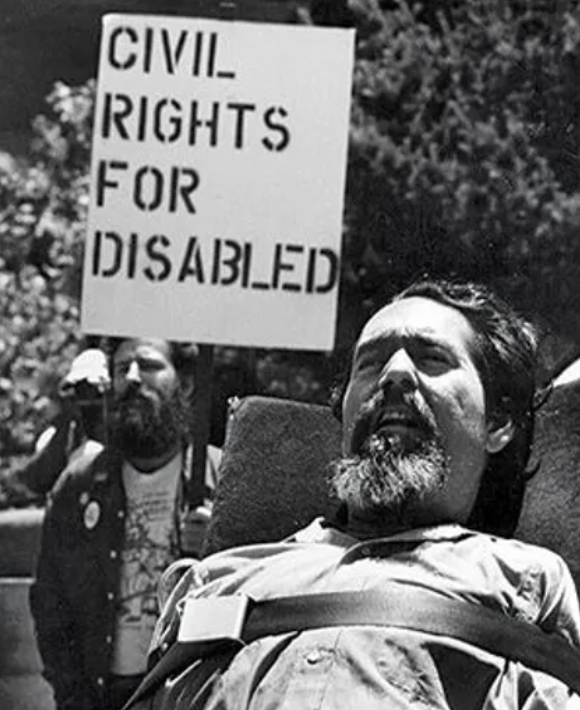Ed Roberts was a pioneering advocate whose life’s work—the Independent Living movement—continues to shift societal perspectives on disability and promote autonomy, dignity, and respect for people with disabilities. January 23rd is recognized as Ed Roberts’ day in honor of his momentous impact. As disability advocates and allies, we are proud to carry the torch for his movement, and eager to celebrate and reflect on the tireless work that helped the Independent Living philosophy take hold.
Roberts contracted polio at age 14 in 1953, which resulted in quadriplegia and required him to sleep in an iron lung. He became a disability advocate in high school, when administrators threatened to withhold his diploma because he hadn’t completed drivers’ training or physical education. He would later become the first wheelchair user to attend the University of California - Berkeley, which lacked accommodations for students with significant disabilities. He also formed the university’s first disabled student group, known as the "Rolling Quads," which began to challenge stereotypes about disability and barriers on campus.
Roberts’ tenacity stemmed from an unwavering belief that choice is the foundation of freedom, and that people with disabilities deserved the same autonomy and control over their lives as anyone else. This belief would become the basis for the Independent Living philosophy that we promote today. It would also help transform the perception of disability from the “medical model,” which viewed people with disabilities as “problems” that needed to be “fixed,” to a social one that views disability as the inability to participate fully in one’s community due to societal barriers that create disabling environments.
Roberts ultimately built an entire movement around the quest for dignity, autonomy, and independence for people with disabilities: the first Center for Independent Living (CIL) opened in Berkeley in 1972, and was revolutionary as the first program run by and for people with disabilities. The CIL provided an array of services, including peer counseling, housing assistance, and vocational training, empowering people with disabilities to live in their communities instead of in institutions or other scenarios that limited their choice and control.
Over the past 50 years, the Independent Living movement has had a profound impact on improving the quality of life for people with disabilities. It influenced the Americans with Disabilities Act (ADA) in 1990, which mandates access and inclusion in public buildings, transportation, education, and employment. The movement has also played a crucial role in changing public perceptions, celebrating disability as a natural part of human diversity and affirming people with disabilities’ value to their communities.
Today, Centers for Independent Living exist worldwide and continue to provide crucial resources and advocacy for the disability community. They strive to create Roberts' vision of a society that embraces people’s differences, cultivates their unique talents, and sees individuals as the experts on and authors of their own lives. Thanks to Ed Roberts’ endless pursuit of equality and inclusion, our world looks much different than the one he experienced in the 1950s while adapting to life with a disability. Because of him and the people he has called to action in the past several decades, the future for people with disabilities looks even brighter.





